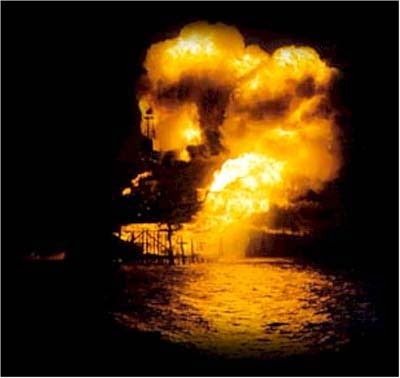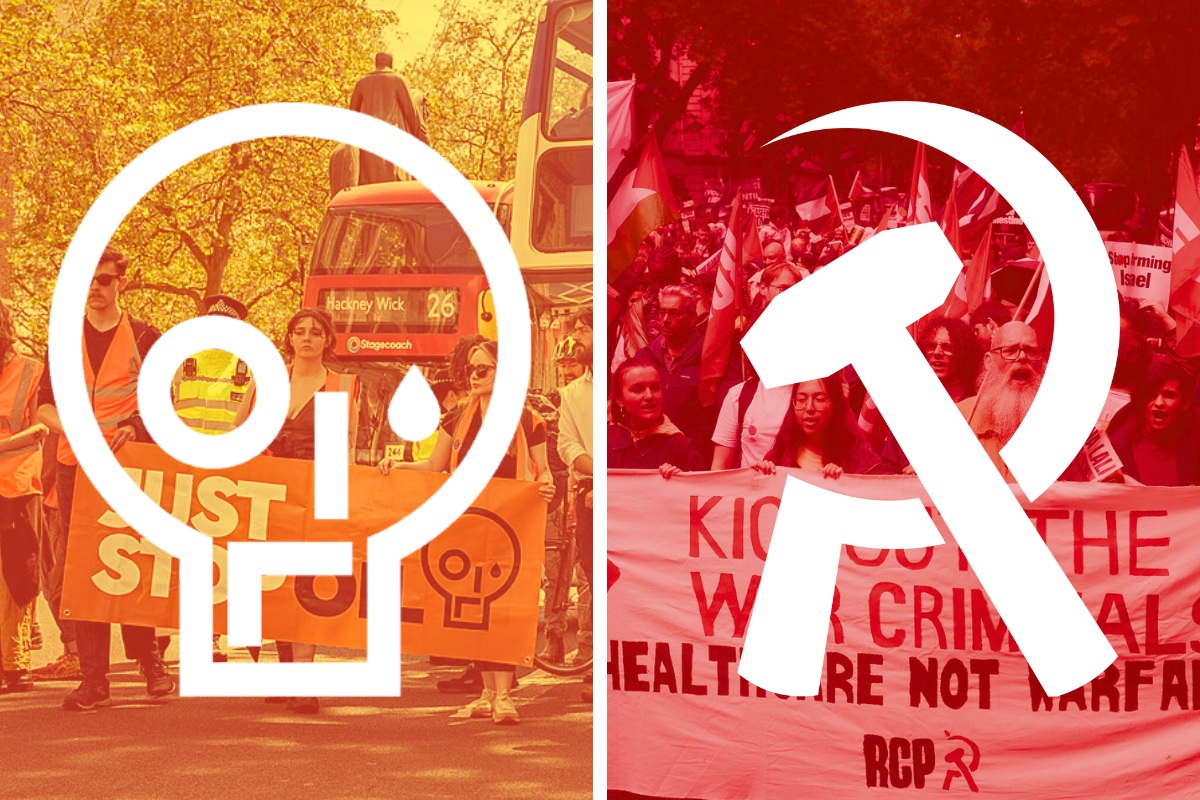Much is said in the news about the disastrous situation that now
exists in the Gulf of Mexico as a result of the Deepwater Horizon
explosion. An ecological disaster of gigantic proportions has been
created by the profit motive, which is what drives the BP executives.
However, were the company to be thoroughly unionised, with workers’
representatives controlling every level of safety, this disaster could
have been averted.
Amidst the acres of newsprint about the Deepwater Horizon blowout
little has been said about those who are most affected – the BP
workforce.
The
mood in Sunbury, in the BP head offices, is a mixture of denial and
anxiety, expressed in a bitter gallows humour and blunt cynicism.
Long-term employees have had several decades of management cock-ups,
re-organisations, cut backs, more re-organisations, and more cut-backs.
Everywhere, whether in the office decor or the lines on people’s faces,
are the symptoms of 20 years of lucrative deals at the top which
eventually have brought this company to its knees. Nobody – nobody – is
surprised at what has happened. Every long term employee knows what lies
behind this disaster. Since the 1990s the company has been running on
thin air, vital services have been outsourced, and quality, like the
pipelines, has decayed. "The new paradigm", the Thatcherite policy of
cutting to the bone and outsourcing to the cheapest bidder, has turned
into the old paradigm – long hours, poor quality, insecurity and stress.
Bland e-mails from management attempting to revive morale merely
infuriate and do the opposite. All eyes are on the blogs and livefeeds
as the relief wells inch to their target. (By the time this is published
they may have reached it – or may have missed.) The fear is growing
that people’s jobs, their mortgages, their families, their children,
their hopes, now depend on the success or failure of those wells. And
even if they succeed that may not be enough. The Financial Times
recently described how an employee in the finance department was in
tears when they were told $20 billion dollars was needed from the credit
markets. More recently the statements in the Financial Times
have been blunter – if the relief wells miss, the company is dead. There
is real gut-wrenching fear amongst some employees – fear that leaves
them wide awake and sweating in the middle of the night.
The best case scenario would be a handout from, say, a Middle Eastern
sovereign wealth fund that buys into the company. Abu Dhabi has been
mentioned. Perhaps operations in the UK could continue unchanged, at
least in the short or medium term. Or perhaps ExxonMobil, Shell, or one
of the other majors will buy the company at a knock-down price. Then
half the jobs will go in Sunbury and Aberdeen – the new owners would
asset strip, remove what they didn’t need, buy the acreage and the
licenses but throw away the rest. The North Sea, already in decline,
would be of little interest to them and the run-down there would
accelerate. The knock-on effect to jobs in the UK would be catastrophic.
And then there is the worst case scenario ‑ rumours are circulating
that there are off-balance sheet debts and, like Enron, this company
could collapse.
As for the North American operations ‑ the US oil majors are circling
like vultures round their prey. They rub their hands with glee at the
extra political leverage this disaster gives them. Licenses and permits
will be up for grabs. Perhaps the operation will be sold. Or perhaps the
debt and costs will all be parked on BP America and it will be
bankrupt. In either case there will be massive job losses.
What can be done? There is limited union representation in BP in the
UK, and none in the main offices in Sunbury and Aberdeen. Now is the
time for a company-wide campaign of union recruitment. This would meet
with a massive response from top to bottom, even from the most
privileged of senior office staff.
A union could be the focus of solid opposition to more job losses. A
unionised work force could mount a fight against any redundancies,
voluntary or otherwise – and for protection of the North Sea investment.
Not for patriotic reasons but for preservation of jobs and industries –
fundamentally for preservation of the wealth and technology created by
the labour of two generations of oil workers in the North Sea.
The current safety rep system on the rigs needs a thorough overall.
The two-year fixed term must be ended and replaced by the right of
instant recall by those who voted for the rep. No more careerism and
toadying to management!
The system should be extended to the Sunbury and Aberdeen offices.
All asset and project teams must include an elected safety watchdog.
These must be given funding from the company to allow commissioning of
independent research, and in particular to obtain a genuinely
independent assessment of sub-contractor activities. In too many areas
the necessary expertise is no longer there as a result of the cutbacks
over the last 20 years.
A joint union/safety rep committee should be established in Sunbury
and Aberdeen that investigates and reviews all planning and investment
decisions where safety or environmental issues are involved. The
committee should have the power to veto any that are unsafe with the
sanction of strike action if management do not accept their decisions.
Union reps should demand full access to the books and commission an
independent audit to investigate any off balance-sheet items or other
financial tricks in the company accounting. No dividends until a
union-led financial and safety audit is complete!
If management do not comply, the ultimate sanction is removal of all
senior management except those with required and proven technical
skills. (1 in 5? Less?) Supervision of those remaining by elected
workforce reps. Plus removal of the board and replacement by a team
consisting of 1/3 employee, 1/3 union and 1/3 government
representatives, running a newly (re-)nationalised BP.
This is how to put a stop to the activities of BP’s private owners
and their reckless pursuit of profit at any cost. This has wrecked this
company and now threatens the livelihood of all its employees, and of
many millions of others.





